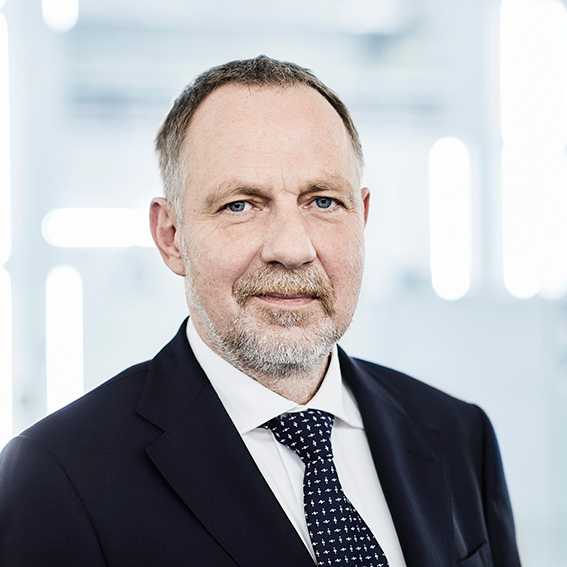Switzerland now a non-associated third country in Horizon Europe
What had been feared since the breakdown of the EU-Swiss bilateral agreement negotiations has now come to pass. Yesterday, the European Commission notified the State Secretariat for Education, Research and Innovation (SERI) that Switzerland will be treated as a non-associated third country for the submission of project proposals in Horizon Europe and other related programmes and initiatives. Although this status can be changed at any time, it will now apply for all calls in 2021.
Participation in collaborative projects still possible
Important for all ETH researchers: as participants from a non-associated third country, researchers and innovators in Switzerland can continue to apply for calls for collaborative projects in which third countries are eligible to participate. These will not be financed by the European Commission, but funded directly by the State Secretariat for Education, Research and Innovation (SERI). This will be subject to the condition that their project applications are considered as being eligible for funding by the European Commission or its commissioned agency. However, participants from non-associated third countries cannot take on coordination tasks in collaborative projects.
Participation in individual projects currently not possible
Participation in mono-beneficiary instruments (individual ERC grants, MSCA Postdoctoral Fellowships, MSCA COFUND and the EIC Accelerator) is by principle excluded for researchers from a non-associated third country. However, exceptional rules apply to the 2021 calls of the ERC Starting Grants (StG) and the ERC Consolidator Grants (CoG), which have already been closed or the registration deadline has passed. As the host institution for these projects can be changed during the preparation phase of the Grant Agreement, proposals submitted by Principal Investigators based at a Swiss host institution will be evaluated by the European Commission. SERI will provide national funding for researchers whose proposals for an ERC StG or CoG were positively evaluated. In addition, SERI will prepare proposals for suitable transitional measures for those programme parts that are no longer accessible in view of the Confederation's credit and budget process (notably for ERC Advanced Grants and for the field of quantum and space technologies).
More detailed information can be found on the external page SERI website. There you will find a fact sheet and some FAQs about Swiss participation in Horizon Europe and related programmes and initiatives. These documents are updated regularly.
ETH researchers with further questions or who wish advice should contact EU Grants Access: www.grantsaccess.ch
Interview with Detlef Günther, Vice President for Research at ETH Zurich

Detlef Günther, it is now clear that Switzerland will now be treated as a non-associated third country in the Horizon Europe funding programmes. What does this mean for ETH Zurich?
Switzerland’s full association status in the world’s largest research funding programme is of crucial importance to ETH Zurich. Since 2007, ETH researchers have received in excess of 500 million Swiss francs from the European Research Council (ERC) to advance their projects. The fact that we at ETH are excluded from taking part in a large number of these funding programmes is incomprehensible to me. I very much personally regret this development.
Is ETH now short of research funds?
Finances are only one aspect. We are now dependent on additional support from the Confederation. But much more important in Horizon Europe is international cooperation and competition among Europe’s best universities. Our researchers will now only be able to compete to a very limited extent. This will make Switzerland a less attractive place to work for top researchers. Or to put it simply: we can no longer play in the Champions League and have to contend with the Swiss League.
If this were football, this would probably prompt some players to change clubs...
And that is exactly the threat that will face research: that top-class researchers will stop coming to Switzerland or even leave Switzerland if we are only allowed to play in a few minor matches over the long term and cannot be a leading player. This will result in the loss of crucial know-how and, of course, have a knock-on effect on the Swiss economy.
What impact will the decision have on international research collaboration?
About half of all our international collaboration is currently with the EU. And Europe is also the most important international partner for the other Swiss universities. Collaborating with other European universities will now become a Herculean task – individual contracts will have to be drawn up, which will cost time, put a brake on research and significantly reduce the attractiveness of Swiss universities as research partners.
What do you expect will happen in the future?
In the short term, I hope that SERI will introduce some quick and uncomplicated bridging measures. Our researchers should not have to suffer from the breakdown in political negotiations with the EU. Over the long term, it is crucial for Switzerland as a research location that the decision-makers do everything in their power to drive forward negotiations with the European Union and make it possible for Switzerland to regain full association status in Horizon Europe. I am confident that Switzerland’s return to full representation in cutting-edge research is not only in the interest of Swiss universities, but of all of Europe's universities as well. In times of enormous global challenges and increasing pressure from international players, it is all the more important that Europe puts on a concerted front in the field of research.
Comments
No comments yet